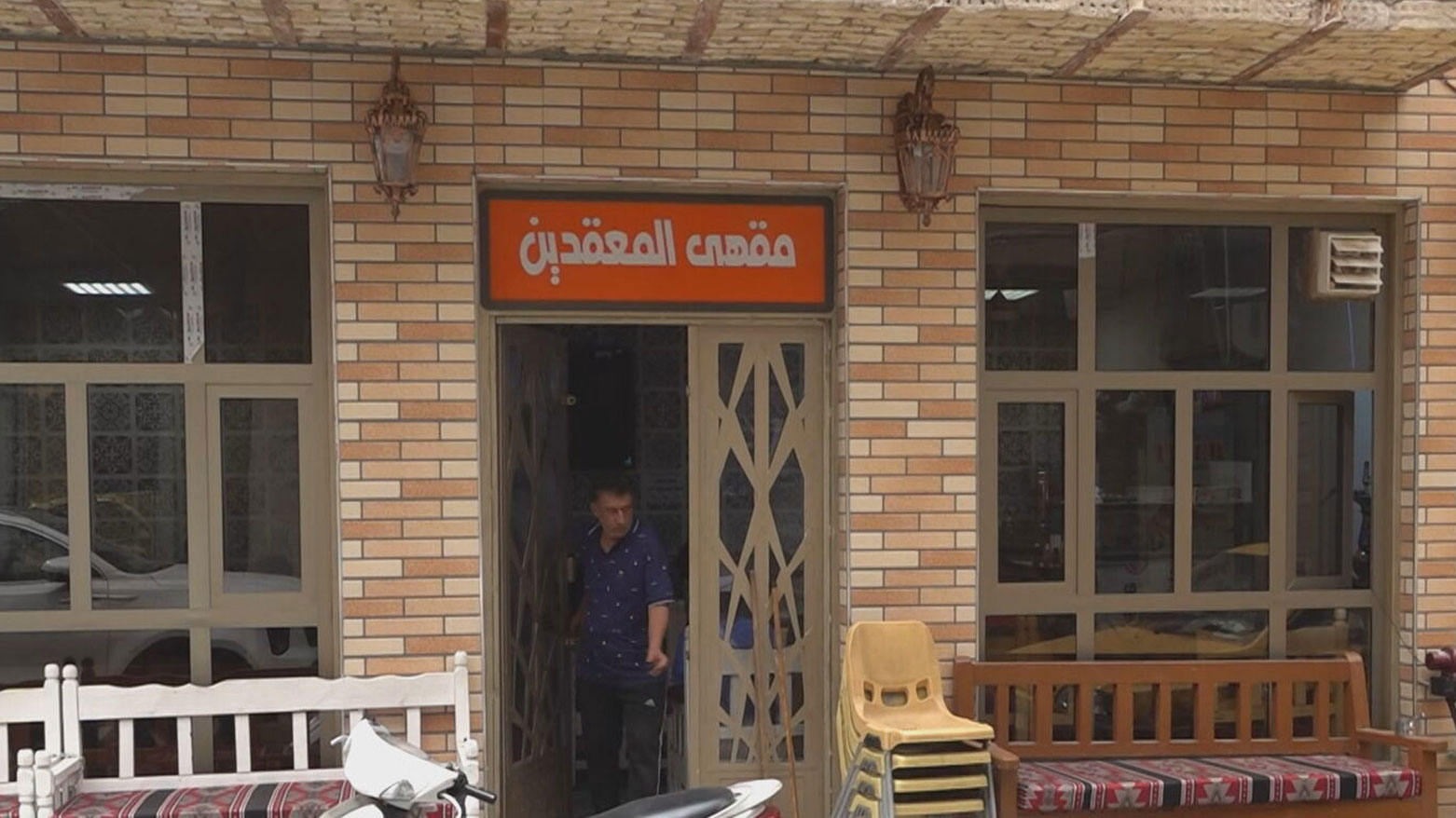The Café of the Complicated: Baghdad’s Most Eccentric Hideaway for Whispered Revolutions
Tucked in a backstreet of Baghdad, this café is not known for its décor, its menu, or even its coffee—but for its name, which roughly translates as “The Café of the Complicated.”

By Kamaran Aziz
ERBIL (Kurdistan24) – In a city where names often aim to flatter, the Mu‘aqaqin Café stands proudly, or perhaps perplexedly, apart. Tucked in a backstreet of Baghdad, this café is not known for its décor, its menu, or even its coffee—but for its name, which roughly translates as “The Café of the Complicated.” And if you think that’s confusing, just wait until you meet the regulars.
Born in the politically fraught era of the 1970s and 1980s, when Saddam Hussein’s regime wasn’t exactly handing out free speech vouchers, the café became a haven for leftists, communists, and others whose ideas had trouble finding oxygen outside a smoke-filled room. Conversations were conducted in code, muttered behind cups of tea and cigarette smoke. Patrons spoke in such low tones that onlookers simply dubbed them “mu‘aqaqin”—those who mutter, ramble, or (let’s be honest) think too much.
What started as a tongue-in-cheek label soon stuck, like a coffee stain on the shirt of history. Over the decades, the café evolved into something of a Baghdad institution—a place where thinking aloud was dangerous, so people thought quietly instead. And the ideas? Deliciously subversive.
“I’ve lived in this area for more than 60 or 65 years,” said Abu Bashar, one of the café’s most venerable patrons. “The people who met here used to understand one another deeply. Each had their own ideas and worldviews, and each one shared his perspective with the others. They bonded through thought, not ideology.”
Though the regime changed, the café endured. Governments came and went. Wars erupted and simmered down. Sanctions, bombs, occupations—you name it, the café brewed through it all. While the volume of the conversations has gone up over time, the spirit of quiet rebellion remains steeped in every chipped teacup.
Yet the café’s name continues to spark debate—particularly among younger patrons who wonder why a place should sound like a midlife crisis. Ja‘far Sadiq, the proud owner and son of the original founder, has heard the calls to modernize. “People tell me to change it,” he told Kurdistan24, “After my father passed away, some people asked me to change it, and many customers say they don’t like it. But I refuse to change it. It will remain Mu‘aqaqin Café."
Even if the Café's owner wanted to change the name, what would he call it? Café Latte? Impossible. This place seems to have history. It has character. It has complications!
Indeed it does. To the untrained ear, it may sound like just another hole-in-the-wall. But for those in the know, Mu‘aqaqin Café is a kind of sacred space: part literary salon, part political ghost story, and part theater of the absurd. It is where the complicated go to feel less alone, where ideas are served hot and mildly dangerous.
So next time you’re in Baghdad and hear the name Mu‘aqaqin, don’t recoil—lean in. Order tea. Lower your voice. And listen. You just might hear the muffled echoes of thought too rich for the headlines and too bold for the times. Because in this little café, the revolution was never televised—it was whispered, muttered, and stirred gently with a spoon.
And perhaps that’s what makes it special. Not the walls. Not the chairs. But the stubborn refusal to be simple in a world that demands simplicity.